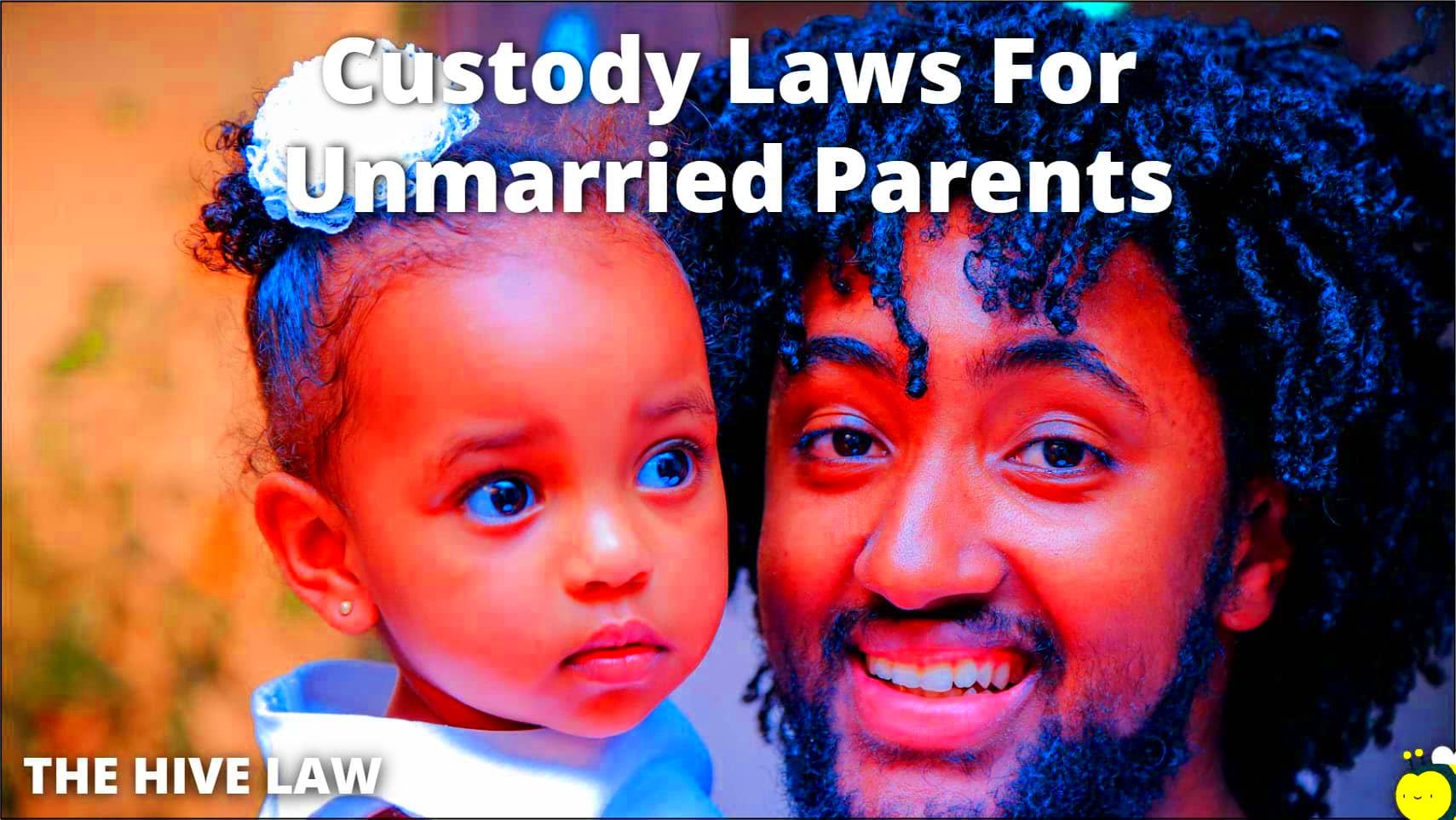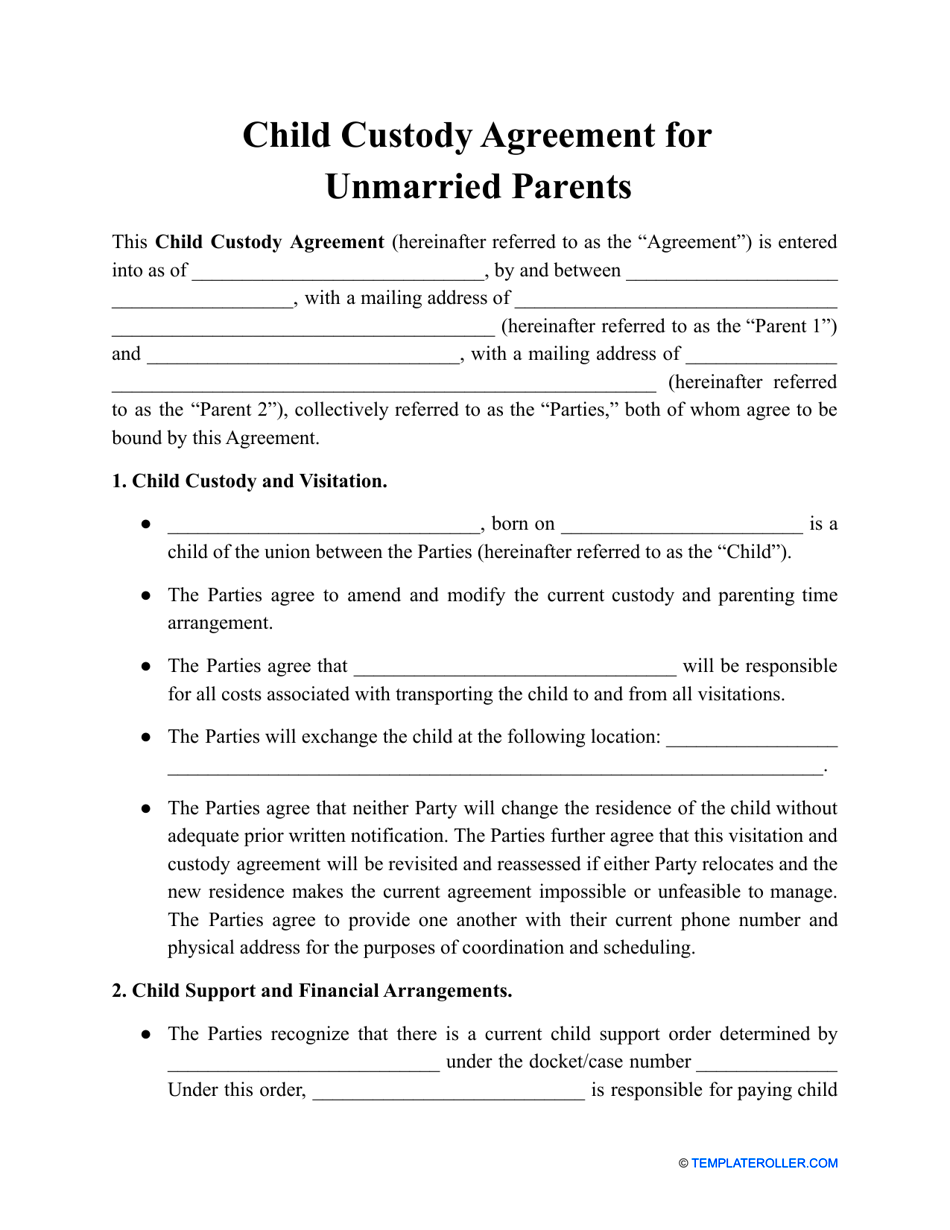Child Custody Laws for Unmarried Parents in Georgia
Navigating child custody as an unmarried parent in Georgia can be a balancing act. Unmarried parents face challenges when it comes to custody arrangements unlike married couples. Many parents are unsure about their rights and obligations. If you’ve ever felt confused by the intricacies of custody laws you’re not alone. For example my friend Priya found herself in a situation when she and her partner separated before their child was born. Gaining insight into the legal framework assisted her in finding a way, forward.
In Georgia the courts focus on what is best for the child. This means that even if you and your partner are not married you still have a part to play in your childs life. The law acknowledges that both parents can seek custody or visitation rights. However unmarried parents may need to take steps to establish their rights. It is important to be proactive and well informed about your legal position. If you find yourself facing a custody dispute it is advisable to seek guidance to navigate the situation smoothly.
Determining Parental Rights in Georgia

Figuring out parental rights in Georgia can be a bit tricky, particularly for parents who aren’t married. It’s not as simple as you might think but grasping the process can really help. Anil who went through a situation found that being informed was his biggest advantage. Here’s a quick rundown of the key things you should be aware of.
- Legal Presumption: Unlike married couples, unmarried parents must establish their rights through legal processes. In Georgia, the mother automatically has custody rights unless the father takes steps to assert his rights.
- Custody Arrangements: Courts will look at various factors to determine custody, including each parent’s ability to provide for the child, the child’s emotional needs, and the stability of each parent’s home.
- Parenting Plan: It’s often helpful to create a detailed parenting plan outlining how you’ll handle custody and visitation. This plan should address schooling, healthcare, and other important aspects of your child’s life.
Figuring out what rights you have as a parent can be challenging, but it’s crucial to make sure your child’s well being is taken care of and that your importance in their life is acknowledged.
How to Establish Paternity in Georgia

For unmarried fathers in Georgia establishing paternity is an important step. Its not merely a procedure; it’s a formal acknowledgment that can greatly impact custody and child support matters. Let me recount a story about my friend Ravi who experienced this journey. Ravi was enthusiastic about being part of his childs life but encountered challenges due to not having legally established paternity. Here’s a guide on how to navigate this process:
- Voluntary Acknowledgment: If both parents agree, they can sign an acknowledgment of paternity at the hospital when the child is born or later through the Georgia Department of Public Health.
- Court Order: If there is a dispute or if the father’s paternity is questioned, either parent can request a paternity test through the court. The court can issue an order based on the test results, which will legally establish paternity.
- Legal Advice: It’s wise to seek legal advice during this process to ensure that your rights are protected and that the legal paperwork is completed correctly.
Confirming paternity is crucial to ensuring that you can play an active and legally acknowledged role in your childs life. While it may take some time and work the effect on your bond with your child can be deep and enduring.
Factors Affecting Custody Decisions
When it comes to custody decisions, Georgia courts have a lot on their plate. They don’t just look at who can offer the home or who has more availability; they prioritize what’s genuinely in the child’s best interest. I recall a friend named Meera who found herself in a custody dispute and was bewildered by the various aspects the court considered. She felt swamped but grasping these factors allowed her to concentrate on what truly counted.
Here’s a summary of the factors that judges consider.
- Child’s Best Interests: This is the guiding principle. The court will look at how each parent can meet the child’s needs, including emotional, physical, and educational needs.
- Parenting Skills: The ability of each parent to care for the child, including their involvement in daily routines, education, and emotional support, is crucial.
- Stability: The court will assess the stability of each parent’s home environment, including factors like housing, employment, and overall lifestyle.
- Parental Relationship: The existing relationship between the child and each parent, including any history of conflict or cooperation, is taken into account.
- Child’s Preference: Depending on the child’s age and maturity, their preferences may be considered. This can be particularly relevant for older children.
By grasping these elements, you can better equip yourself for your custody battle and strive for an outcome that puts your child’s best interests first.
Visitation Rights for Unmarried Parents
In Georgia figuring out visitation rights for parents who are not married can be quite tricky. Its an essential part of keeping a bond with your child even if you dont have custody. My coworker Ravi encountered difficulties in getting to spend time with his kid but understanding his rights assisted him in establishing a visitation routine.
Here’s the scoop on visitation rights you should be aware of:
- Right to Visitation: Both parents generally have the right to visitation, unless it’s shown that such visitation would be harmful to the child.
- Visitation Schedule: It’s important to establish a clear visitation schedule that includes regular, predictable times for visitation. This helps maintain stability for the child.
- Flexibility: While a schedule is important, being flexible can help accommodate the child’s needs and any unforeseen circumstances.
- Dispute Resolution: If disputes arise, mediation or court intervention may be necessary to resolve visitation issues. Seeking legal advice can help in these situations.
Knowing your rights and duties when it comes to visitation can play a crucial role in preserving a close relationship with your child and making sure their needs are taken care of even if you arent the main caregiver.
Modifying Custody Agreements
Changing custody arrangements can be a challenging and heartfelt journey. Many parents like my friend Priya find themselves facing this situation when life throws unexpected changes their way. Whether it’s a job opportunity relocating to a new city or shifts in a child’s needs adjusting the agreement may be essential to uphold what truly benefits the child.
Here’s a guide on how to go about changing a custody arrangement.
- Reasons for Modification: Valid reasons might include changes in a parent’s work schedule, relocation, or significant changes in the child’s needs or living situation.
- Legal Process: To modify a custody agreement, you typically need to file a petition with the court. The court will review the request to ensure that the modification is in the child’s best interests.
- Agreement Between Parents: If both parents agree to the modification, it can simplify the process. A mutual agreement is often looked upon favorably by the court.
- Documentation: Be prepared to provide evidence supporting the need for modification. This could include changes in financial circumstances, new job details, or medical records.
Changing a custody arrangement takes thought and usually some legal help. By prioritizing what’s best for your child and cooperating with the other parent you can make sure that the custody setup still benefits your child’s welfare.
Legal Assistance for Unmarried Parents
As an unmarried parent seeking legal support can be a game changer. I remember my friend Aarav talking about his custody battle and how his lawyer played a role in helping him navigate the complexities of the situation. Having the right legal assistance not only brings clarity to the process but also offers comfort during challenging times.
Here’s why legal assistance is so important:
- Understanding Your Rights: A lawyer can help you understand your legal rights and responsibilities, ensuring that you’re fully informed about your position and options.
- Preparing Documents: Legal matters often require extensive paperwork. A legal expert can assist in preparing and filing documents accurately and on time.
- Representing You in Court: If your case goes to court, having a lawyer to represent you can be crucial. They’ll advocate on your behalf, present your case effectively, and work towards the best possible outcome.
- Negotiating Settlements: A lawyer can help negotiate custody and visitation agreements that are fair and in your child’s best interest, potentially avoiding prolonged court battles.
Selecting the appropriate legal support can greatly influence the result of your case. Look for referrals conduct thorough research and find an attorney who comprehends your circumstances and is dedicated to your child’s best interests.
Common Challenges and Solutions
Dealing with problems as a single parent can be tough. When my cousin Neha had to handle a custody battle she faced many obstacles like proving paternity and working out visitation arrangements. Knowing about these challenges ahead of time can better equip you to handle them and come up with solutions.
Here are some common obstacles and possible ways to overcome them.
- Establishing Paternity: If paternity isn’t established, a father might face difficulties in asserting his rights. Solution: File for paternity through the court or voluntary acknowledgment forms to secure legal recognition.
- Determining Fair Custody Arrangements: Balancing the needs of the child with parental rights can be tricky. Solution: Work with a mediator or legal advisor to develop a fair and detailed parenting plan.
- Enforcing Visitation Rights: Sometimes, one parent may not adhere to the visitation schedule. Solution: Keep detailed records and seek legal intervention if necessary to enforce your rights.
- Managing Legal Costs: Legal proceedings can be expensive. Solution: Explore options like legal aid services or payment plans with your lawyer.
By recognizing these obstacles and preparing for them, you can tackle your legal issues with greater certainty and achieve more favorable results for yourself and your child.
Frequently Asked Questions
Navigating child custody matters can bring up a flurry of inquiries. Whether it’s grasping legal jargon or figuring out the next course of action the whole situation can feel like a lot to handle. I recall an instance when my friends cousin was inundated with questions and she realized that having clarity brought significant relief in navigating the process.
Below are some common questions along with their responses:
- What if we can’t agree on a custody arrangement? If parents can’t reach an agreement, the court may intervene to decide what’s best for the child. Mediation or legal advice can help in reaching a compromise.
- How do I modify a custody agreement? To modify a custody agreement, you need to file a petition with the court explaining the reasons for the change. The court will review the request to ensure it’s in the child’s best interest.
- Can a father get custody if he wasn’t involved initially? Yes, fathers can seek custody even if they weren’t involved initially. Establishing paternity and proving your capability to care for the child are crucial steps.
- What are the costs associated with legal proceedings? Legal costs can vary. It’s wise to discuss fees upfront with your lawyer and explore options like legal aid if cost is a concern.
Getting these insights can shed light on the journey and assist you in making choices that prioritize your childs welfare.
Conclusion
Navigating the complexities of custody laws as an unmarried parent in Georgia can be tough. However knowing your rights and the legal procedures involved can make a significant impact. From establishing paternity to discussing custody arrangements and visitation rights every step requires careful thought and often legal assistance. Reflecting on experiences like my friend Aarav’s custody battle highlights the significance of being well informed and proactive. Whether you’re looking to modify custody agreements or seeking help remember that the ultimate goal is to achieve the best outcome for your child. By staying updated and seeking support you can navigate these challenges more efficiently and focus on creating a nurturing environment, for your child’s well being.


